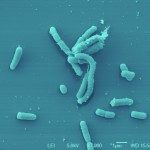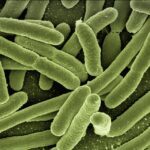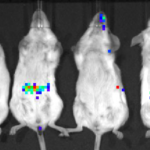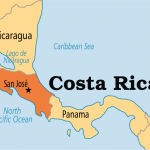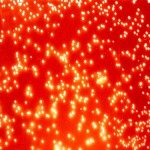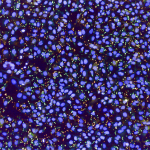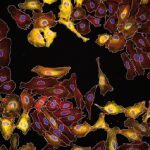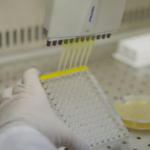Javier Pizarro-Cerda obtained B.Sc. and M.Sc. degrees from the University of Costa Rica while working in the laboratory of Edgardo Moreno, studying the adaptations of the outer membrane of the Gram-negative pathogen Brucella abortus to cationic peptides. He then obtained a D.E.A. and a Ph.D. from the University of Aix-Marseilles while working in the laboratory of Jean-Pierre Gorvel, identifying the intracellular trafficking of Brucella abortus in epithelial cells. Subsequently, he joined the laboratory of Pascale Cossart at the Pasteur Institute in Paris to investigate signaling cascades triggered by the Gram-positive pathogen Listeria monocytogenes during invasion of host mammalian cells. In 2001 Javier Pizarro-Cerda joins the Pasteur Institute as a permanent researcher and obtains his first grant from the French Ministry of Research. Since, he has been involved in local (Pasteur Institute Transversal Programs), national (National Agency for Research) and international (ERANET, System X) research initiatives, investigating the adaptations of bacterial pathogens to intracellular life. He has been actively involved in teaching and has participated in practical and theoretical courses in France, Argentina, Costa Rica, Grèce and China. During his career, Javier Pizarro-Cerda has developed his research as invited investigator in different international laboratories including the Center for Microscopy & Microanalysis (Queensland University, Australia), the Weizmann Institute (Rehovot, Israel), the University of Texas-Southwestern (Dallas, USA), the Max Planck Institute for Infection Biology (Berlin, Germany) and the Biozentrum (Basel, Switzerland). In 1998, Javier Pizarro-Cerda obtains the Costarrican National Award for Science ‘Clodomiro Picado-Twight’, in 2012 he becomes member of the Costarrican Academy of Sciences and in 2015 he receives the Senate Medal from the French Senate for his contribution fostering interactions between France and Latin America. In 2016, Javier Pizarro-Cerda becomes head of the ‘Systems Biology of Bacterial Infections Group’ and is promoted as Director of Research from the Pasteur Institute.
Cliquez pour voir le graph
Connexions
Cliquez pour voir la ligne de temps
Ligne de temps
Projets Transversaux
Projets
Logiciel
Outils
Anciennes Équipes
CV
Publications
Télécharger-
2025Impact of virulence factors overexpression on Listeria monocytogenes F2365 epidemic strain fitness and the limitations of surrogate species in UHT and raw milk., NPJ Sci Food 2025 Dec; 10(1): 15.
-
2025Evaluating the early diversification of Yersinia pestis and its phylogeographic expansion over 96 years of evolution in Madagascar., Commun Biol 2025 Nov; 8(1): 1705.
-
2025Cross-border outbreak of Yersinia enterocolitica bioserotype 2/O:9 infections associated with consumption of French unpasteurised soft goat’s milk cheese, 2024, Eurosurveillance, 2025, 30 (26), ⟨10.2807/1560-7917.ES.2025.30.26.2500002⟩.
-
2025In-host evolution of Yersinia enterocolitica during a chronic human infection, Nature Communications, 2025, 16 (1), pp.5637. ⟨10.1038/s41467-025-60782-6⟩.
-
2025Attenuation of virulence in Yersinia pestis across three plague pandemics, Science, 2025, 388 (6750), pp.eadt3880. ⟨10.1126/science.adt3880⟩.
-
2025Contribution of the type 3 secretion system to adaptive and innate immunity induced by a live Yersinia pseudotuberculosis plague vaccine., Vaccine 2025 Apr; 51(): 126887.
-
2025Genomic Characterization of Yersinia enterocolitica Isolates, Costa Rica., Emerg Infect Dis 2025 Apr; 31(4): 848-860.
-
2025Complete genome sequences of Yersinia pestis 6/69 strain isolated from a bubonic plague patient in Madagascar and its isogenic strain cured of pPCP1., Microbiol Resour Announc 2025 Mar; 14(3): e0102124.
-
2025Reply to: Insufficient evidence for natural selection associated with the Black Death, Nature, 2025, 638 (8051), pp.E23. ⟨10.1038/s41586-024-08497-4⟩.
-
2025Author Correction: Evolution of immune genes is associated with the Black Death., Nature 2025 Jan; 637(8048): E30.
-
+Voir la liste complète de publications

